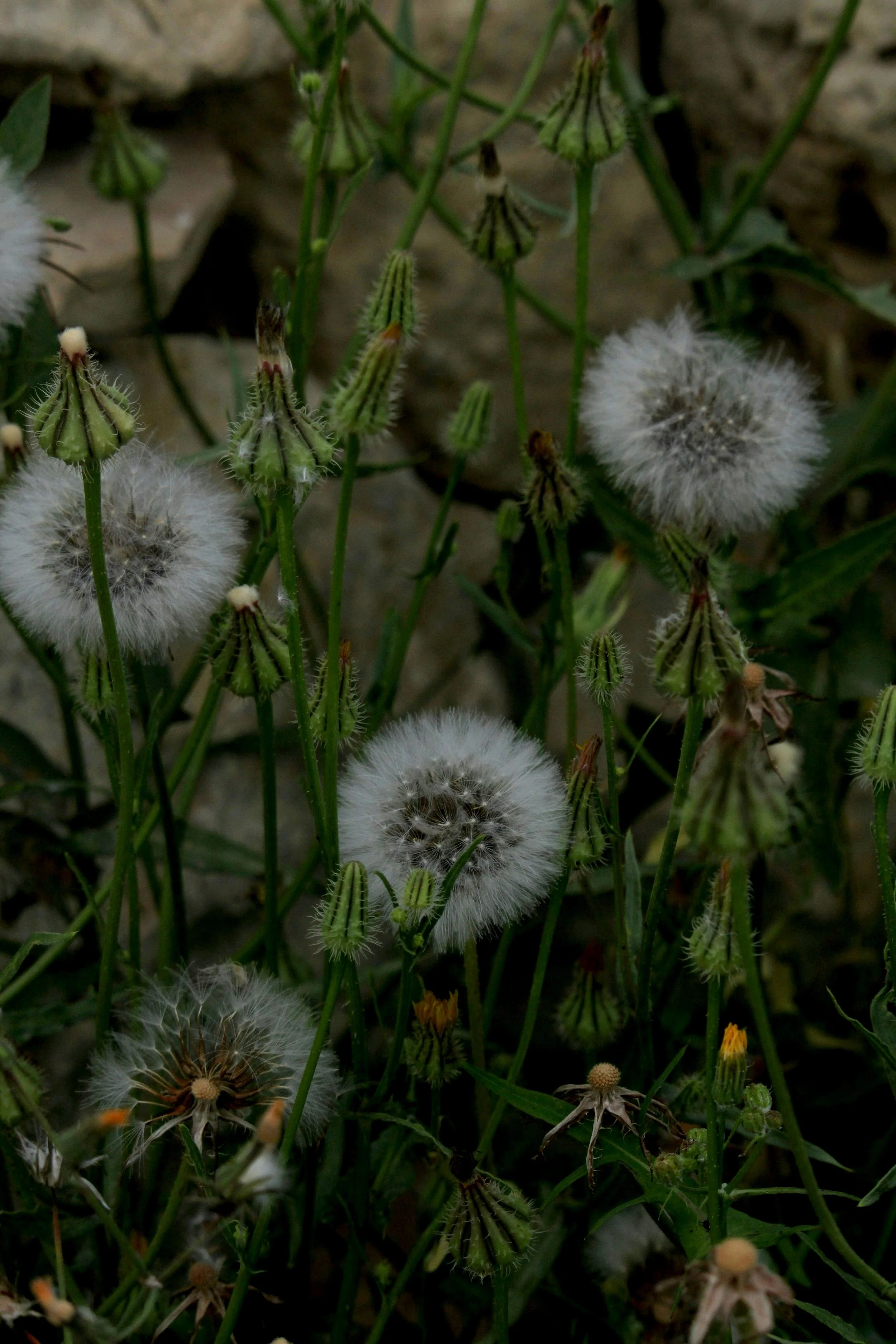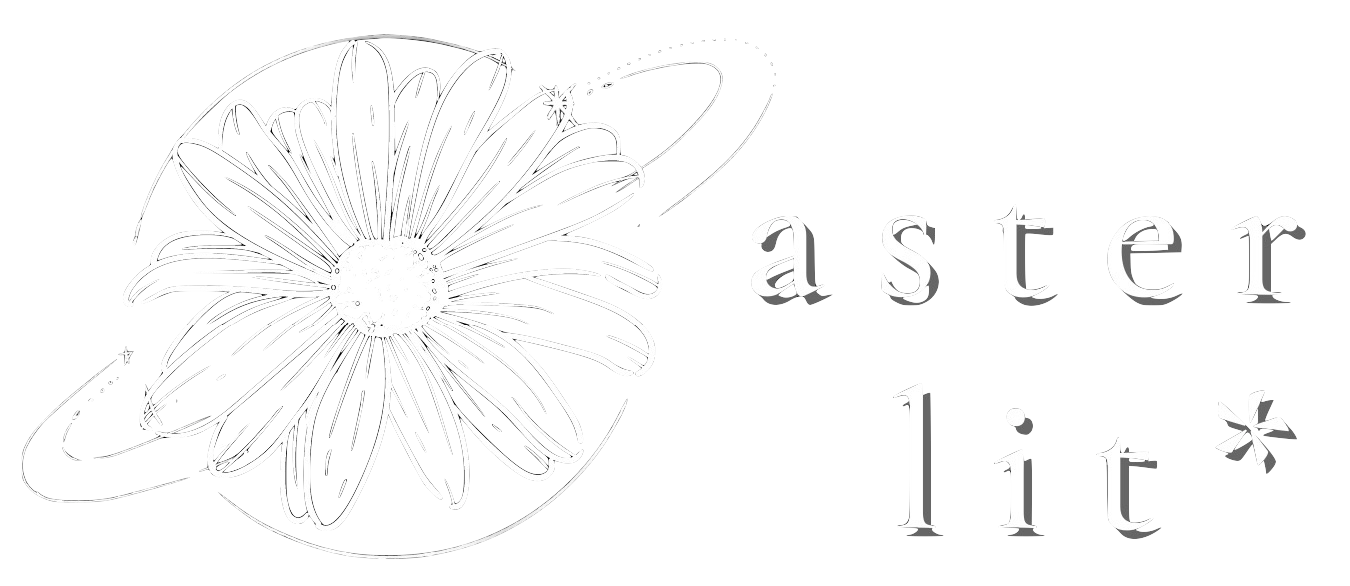
Aster Lit: translatability
Issue 12- Summer 2024
mahal: love as the first language i’ve ever known
Yen Valencia, Phillipines
I was translating a paper when I searched for the English word for “mamahalin,” which was translated into love—when what I meant was something expensive. “Mamahalin kita nang wagas.” “Mamahalin ‘yung baso, ha?” “Mamahalin naman ang pormahan mo.”
In my language, the word for love is synonymous to something not easily afforded. Expensive, costly, exorbitant. “Mahal,” Filipinos mutter to themselves—as the consumers put something precious in a century-old vintage shop back to its rightful shelf and walk away from it. Afraid to break something so fragile, carrying so much history in its preserved body, and pay it back with their only life; afraid to touch something unfathomable—not easily cupped between the palms of mortal men. To love is to need and want all the same, I think. I’d come home running to it each time I leave. I’d sneak around the corner once more just to catch a glimpse of it, as if glancing is better than holding it, as if yearning is tolerable than cradling it with my feeble, unworthy hands. To love is to price something and make it unaffordable.
“Mahal,” Filipinos would mutter again, like a praise, that soothes and makes one feel as if they have lived their lives in all shades of gold and rust just so they could be called this. “Mahal,” Filipinos would say, softly, endearingly, longingly—far more reassuring than the raging and hushed tones of their local dialects that had told century-old stories of town ghosts and gossips and folktales passed through generations. Mahal. Like a prayer to the gods, a hymn of gratitude for this life where they were given music to serenade in heartbeats—that’s the history of the word mahal, its weight garnered since time immemorial being both a burden and blessing. Mahal. To call their loved ones dearly. To make them priced, treasured, cherished. Mahal, for the cowards and courageous, as they would have something right at their fingertips, but then to try to keep it at arm’s length away, or to embrace and hold it dearly even with the price to pay.
So every time we love, each of our limbs gain a fortune and our hearts swell in some disbelief—if—and perhaps, only if—how much of a saint have we become to deserve something immortal like this?
But Love, I am only human. The duality of our human language often haunts me, scares me—because when all words fail, how could I reach you then? There are these thoughts forever lost in the pursuit of translation, like when I tell you the words I love you in English because it is often the language we are taught in the school halls where I met you. There are gaps between the spaces of what I wrote here, and what I meant. There is a distance between my hand and my heart of which I cannot make the ends meet.
But what I mean is that mahal kita. Do I tell you that when I dream in my sleep? When I sleep talk in my dreams, and you yearn to be bigger than the words we could ever tell each other. What I mean is that mahal kita. Did you ever wonder what it meant, when suddenly it escaped my lips in the form of a smoke that yearned to inhale the same atoms you breathe? Did you ever search for its translation, and felt the gaps, felt the tremors of my heart because nothing could ever encapsulate it? Nothing at all. Mahal. You are not a commodity or some of the goods I plan to return to the grocery store. Mahal. I call you that in the promise to love you at the expense of whatever it may cost me.
Footnotes:
This work stems from the duality of Filipino language. One can say “matigas ang bato” (which may meam ‘The rock is hard’) and “matigas ang ulo mo” (which means ‘You’re hardheaded’). An adjective alters its meanings when used in different contexts. Even the word “ibig” means “to mean,” while at the same time, “pag-ibig” also means “to love.” When I watched the film Past Lives (2024) by Celine Song, there was a part where Arthur said to Nora: “You dream in a language that I can’t understand. It’s like there’s this whole place inside of you where I can’t go.” Language could only be the tip of our soul’s icebergs. We all could only write half of what we may mean, others could understand half of what is truly meant. All of us, lovers and readers and writers, all we could ever do is try our best.
Translations
(Filipino to English)
“Mamahalin” — If a Filipino verb (pandiwa), it means “to love.”
“Mamahalin” - If a Filipino adjective/noun, it means “expensive.”
“Mahal kita” —I love you.
“Mamahalin kita nang wagas”—I would love you unceasingly.
“Mamahalin ‘yung baso, ha?” — The glassware is expensive, isn’t it?
“Mamahalin naman ang pormahan mo.” — Your outfit is expensive-looking.
Yen Valencia, 17, is a Filipina. She has a passion for literature all while trapped in a STEM student's body. She wrote the article 'Pandesal and other cravings' for the Philippine Daily Inquirer, and explores the haunting of sentimentality scattered across time in her pieces.

